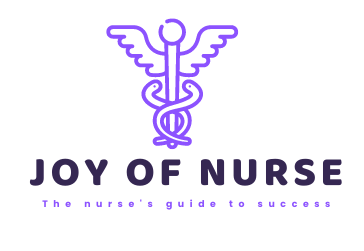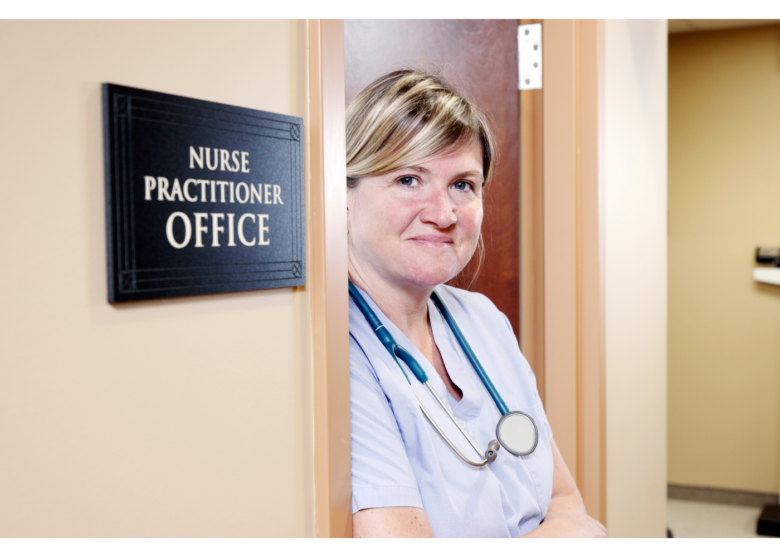Are you planning to become a nurse practitioner and are here to educate yourself about it? Or you want to know what its role is and how it differs from other health professionals? Well, we have got you covered.
A nurse practitioner is a nurse who examines, diagnoses, and treats patients. They also perform duties like patient care. A graduate-level education is a must for becoming an NP. They play a similar role as doctors, but they are not as authorized as doctors for certain prescriptions and treatments.
Reading this brief blog post will educate you about everything about being a nurse practitioner. You will learn about their studies, jobs, and types. Keep reading as we unveil more details about it.
What is a Nurse practitioner?
A nurse practitioner is a nurse, but with graduation-level education. This additional study and practice gives them more authority as compared to registered nurses. The highest qualification for NP’s is a doctor of nursing. They are authorized to perform similar roles as doctors.
Nurse practitioners usually provide patient-focused treatment. They help in taking preventive measures and maintaining a healthy lifestyle. NPs can serve as both primary and specialized care physicians. They usually work in places like:
- Physicians’ offices
- Clinics
- Hospitals
- Emergency rooms
- Urgent care sites
- Nursing homes
- Colleges
Types of Nurse Practitioners
When exploring the diverse field of healthcare, it’s essential to understand the various specialized roles that nurse practitioners (NPs) can undertake. NPs are highly trained professionals with the expertise to provide advanced nursing care in specific areas. Here are some prominent types of nurse practitioners, each focusing on distinct aspects of patient care:
- Family Nurse Practitioners (FNPs): FNPs specialize in providing comprehensive healthcare to individuals and families across the lifespan. They help manage a broad range of medical conditions.
- Adult-Gerontology Nurse Practitioner (AGNP): AGNP’s focus is on the healthcare needs of adults, including the aging population. They are specially skilled in managing complex medical issues in this demographic.
- Paediatric Nurse Practitioner (PNP): PNP’s specialize in delivering healthcare to infants, children, and adolescents. They take care of pediatric-specific health concerns and developmental needs.
- Women’s Health Nurse Practitioner (WHNP): WHNP’s focuses on women’s health issues. They specialize in providing care for women of all ages and addressing feminine health concerns like reproduction, gynecology, etc.
- Psychiatric-Mental Health Nurse Practitioner (PMHNP): PMHNP specializes in mental health and psychiatric care. They help in diagnosing and treating mental illnesses. They also provide therapy and counseling services.
- Acute Care Nurse Practitioner (ACNP): The ACNP manages patients with complex acute or critical conditions. They usually work in intensive care units or emergency departments.
- Neonatal Nurse Practitioner (NNP): MNP’s focus is on the specialized care of newborns. They specialize in treating prematurely born infants or those with medical complications.
- Adult-Gerontology Acute Care Nurse Practitioner (AG-ACNP): AG-ACNPs have expertise in caring for acutely ill adults. They help in managing the healthcare needs of the aging population.
- Emergency Nurse Practitioner (ENP): As the name indicates, ENP’s work is in emergency and urgent care settings. They address immediate healthcare needs, stabilize patients, and coordinate follow-up care.
- Orthopaedic Nurse Practitioner: The last on our list are ONPs. They specialize in musculoskeletal health, managing orthopaedic conditions, injuries, and the rehabilitation of patients.
How Do I Become a Nurse Practitioner?
Becoming a nurse practitioner (NP) involves a combination of education, clinical experience, and certification. Here are the general steps to becoming a nurse practitioner:
- Educational Requirements:
- Earn a Bachelor of Science in Nursing (BSN): The first step to becoming a nurse practitioner is completing a BSN program. This typically takes around four years and provides a foundation for nursing principles.
- Gain Nursing Experience: After obtaining your BSN, you need to work as a registered nurse (RN) to gain practical experience. Most NP programs require at least one to two years of nursing experience.
- Choose a Specialization:Decide on the area of specialization you want to pursue as an NP. Specializations can include family practice, pediatrics, adult-gerontology, women’s health, psychiatric-mental health, and more.
- Earn an MSN or DNP degree:
- MSN Pathway: Some NPs start with an MSN, which typically takes 2–3 years to complete. This path allows you to start practicing sooner, but the DNP is becoming the preferred degree for NPs.
- DNP Pathway: The DNP is a terminal degree in nursing and is rapidly becoming the standard for nurse practitioners. It typically takes 3–4 years to complete. DNP programs often place more emphasis on leadership, evidence-based practice, and systems thinking.
- Choose an Accredited Program: Select a nurse practitioner program that is accredited by a recognized accrediting body. Accreditation ensures that the program meets certain standards of quality and prepares you for the role of an NP.
- Complete Clinical Hours: Nurse practitioner programs require a significant number of clinical hours. This often involves working under the supervision of experienced healthcare professionals.
- Obtain Licensure: After completing your education, the next step is to obtain national certification in your chosen specialty. This usually involves passing an exam from a certifying body such as the American Nurses Credentialing Center (ANCC) or the American Academy of Nurse Practitioners (AANP).
- State Licensure: After certification, the next step is to obtain state licensure. Requirements vary by state, so check with your state’s nursing board for specific details.
- Maintain Certification: NPs are often required to maintain their certification through continuing education and periodically renew their licenses.
- Consider Further Specialization (Optional): Some NPs choose to pursue additional certifications or further specialization. It enhances your skills or moves you into a specific niche within their chosen field.
Difference Between a Doctor and a Nurse Practitioner
There is a huge difference between a doctor and a nurse practitioner. Although NPs also have authority to treat patients, they can even practice alone in some states. You must go to a medical school, and you need to have a postgraduate degree to be a doctor. On the other hand, NP’s must have a graduation-level degree along with practice.
Moreover, there is also a lot of difference between the study of a doctor and that of a nurse practitioner. Doctors have spent a lot of time training as compared to nurse practitioners.
Final Words
Nurse practitioners (NPs) are essential healthcare professionals with a graduate-level education. NPs perform similar tasks as doctors while maintaining a patient-focused approach. They are specialized in several areas, like family care, mental health, and emergency medicine, which highlights the versatility of their roles.
If you were unable to become a doctor, becoming a nurse practitioner is not a bad idea if you want to stay in the medical field. The average nurse practitioner earns up to $123,455 a year in the US. Feel free to ask if you want to know anything about NP’s.




